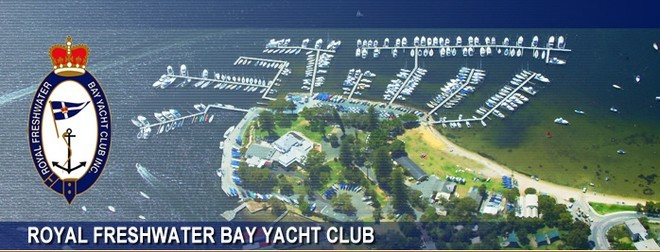60th Race to Bunbury and back
by John Roberson on 23 Jan 2008

http://www.rfbyc.asn.au/ SW
it might not get quite the same world wide media attention, and the entry list may not be as large or as glamorous as the Rolex Sydney, Hobart race, but Royal Freshwater Bay Yacht Club’s Bunbury race has a history that’s almost as long as the race from Sydney to Hobart.
Starting off Fremantle at 9.30 am, on Sunday, will be the 60th Bunbury & Return race, which was first sailed just three years after the first dash south by the illustrious founders of the famous Boxing Day race.
The history for this race is the history of offshore yacht racing in Western Australia, and a browse through the list of winners brings up the names of many of the states most prominent sailors.
The names on the trophy for this race include Rolly Tasker, Merv Finn and Bill Lucas, all legends of the W.A. sailing scene.
While a very competitive fleet of 19 yachts will line up for Sunday’s start, back in the early ‘80s, the halcyon days of W.A. offshore racing, over 60 entries would take to the starting line.
It was a motley selection of boats that sailed the first race in 1948, in the austere post-war days, when the “Liquid Fuel Board” refused a request for a special ration of petrol, so that club powerboats could accompany the fleet as a safety measure.
Of the 19 starters in this weekend’s 60th race, the likely line honours winner is Garth Curran’s Walk on the Wild Side, though one should not discount former Sydney Hobart winner Ausmaid in the hands of Trevor Taylor, or Robert Thomas’s Finistere.
When it comes to handicap honours, then the field is wide open, with a number of boats having shown good form this season.
Graham Bishop’s Crews Control is a consistent good performer, Steel de Breeze in the hands of Brian de Vries, High Anxiety owned by Dean and Todd Giraudo, Michael Finn’s Constellation and Bad Habits with Ian Holder in charge, are all strong contenders.
Although the first race went to Bunbury and stopped, since then it has been a round trip of just over 200 nautical miles.
Back in 1948 the one way journey took just under 24 hours for the leading boat, while these days the line honours winner generally takes less than 18 hours.
If you want to link to this article then please use this URL: www.sail-world.com/41111